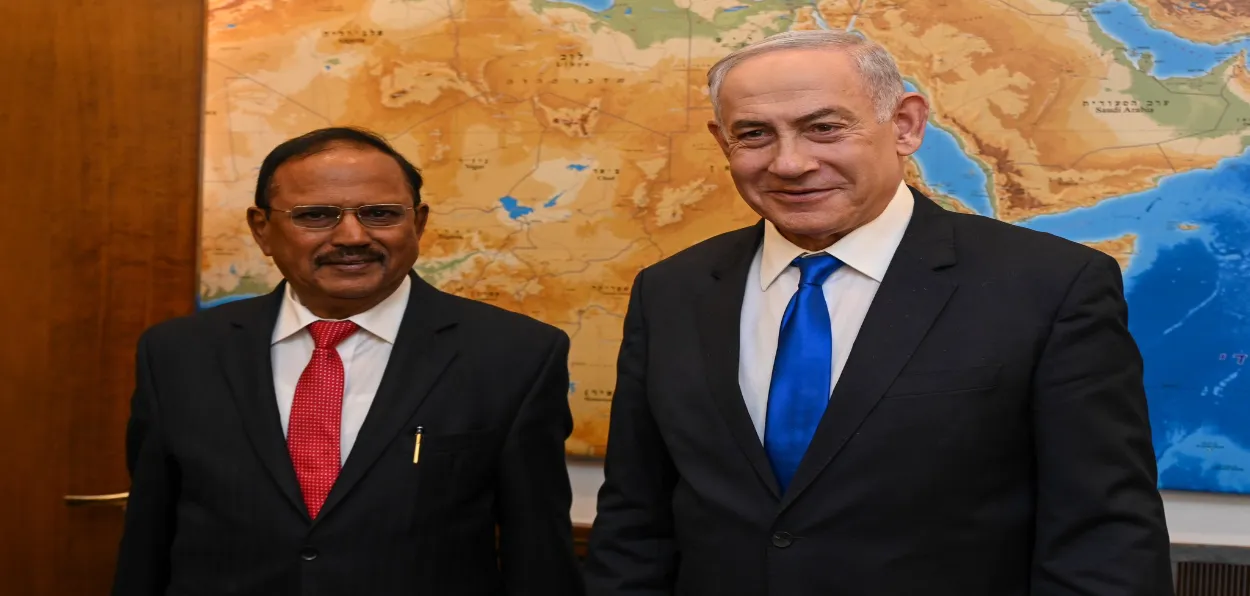
Aditi Bhaduri
For many Indians, Operation Sindoor had the fingerprints of National Security Advisor Ajit Doval all over it. He is, after all, credited with India's strategic shift, espousing a doctrine of defensive-offence and offensive intelligence.
Offensive Intelligence is the gathering of information about an attacker's mindset, tactics, tools, and procedures to better understand their attack methods and vulnerabilities. It involves simulating attacks to identify weaknesses in security systems, essentially thinking like an attacker to strengthen defenses.
Defencive offence, as a brilliant 2016 article on India's best known spy master by journalist Aasha Khosa succinctly explains, quoting Doval: ".......in the defensive mode you throw hundred stones on me I stop ninety but still ten hurt me and I can never win. Because either I lose or there is a stalemate. You start war at your time, you throw a stone when you want, you have peace when you want, you have talks when you want. If we are in a defensive-offence, we will see where the balance of equilibrium is. Pakistan’s vulnerability is many times higher than India’s. Once they know that India has shifted its gears from defensive mode to defensive-offence mode, they will find it’s unaffordable for them. You can do one Mumbai you may lose Balochistan. There is no nuclear war involved."
Indeed, today, Pakistan is grappling with many different fronts to keep its sovereignty intact. Pakistan, however, is not the only case in point.
Intelligence Bureau Chief turned National Security Advisor Ajit Doval's life is the stuff that legends are made of. It reads like straight out of a spy thriller. Undercover agent in Pakistan on two postings, an undercover agent in the guise of a cobbler in front of the Golden Temple, an undercover agent in Mizoram who almost lost his life there, undercover agent posing as an ISI agent in the thick of the Khalistani movement, who broke the back of the movement, for which he was awarded the Kirti Chakra in 1988. Doval became the first police officer to receive a medal previously given only as a military honour.
Today the Khalistani movement is dead in India and the country has moved on. Whatever vestiges of the once dreaded and fracturing movement remain are on foreign shores stoked by vested interests, it has no takers in India. No wonder, Indians affectionately call him the Indian James Bond.
All of the above, however, are known to his followers and admirers alike. He is hailed as a patriot by most Indians, inclusive and concerned. What is less talked about is the humane side to India's spy chief.
Take, for instance, Doval's visit to Israel last year on the eve of Ramadan. The objective was to urge Israel to a ceasefire during the month holy for Muslims. Uppermost on the NSA's mind was the sensitivity and emotions of Muslim citizens.
In a month that is meant to be of special significance to Muslims, one that is meant to be full of charity and piety, the sight of the violence with their co-religionists in that war zone was painful. Doval cared enough for Indians to try and urge at least a temporary halt to violence for Ramadan. Nothing came of it, but Doval had done whatever had been possible for him.
Doval has also been instrumental in the reinstatement of former militants, including in Kashmir and in the Northeast, like Mizoram, Tripura, and others. While on one hand in eliminating India's adversaries, he also believed in administering the human touch and giving opportunities for surrender and rehabilitation to many youth who had gone astray in different parts of the country.
He is not guided by retribution towards rebels but espouses their reformation and return to the mainstream. No wonder, he was chosen to be India's National Security Advisor - the second Indian Police Service officer to be given this position, which was considered a forte of the Indian Foreign Service - after his retirement and setting up Vivekananda International Foundation - a right-leaning think Tank.
Perhaps one of the NSA's major contributions has been his ability to set up a rapport with the Muslim world. Doval, as a true patriot, has immensely succeeded in putting across effectively India's position and voice on matters, especially regarding its own security. As Doval took on the reins of the National Security Agency, he was effective in having many individuals wanted by India repatriated from Gulf countries to India. This has been a major feat for India's security agency. Along with this, in a de-radicalisation drive, Indian preachers were sent to the Gulf, showcasing India's commitment to peace and pluralism.
ALSO READ: Op Sindoor: Bold attack on Pakistan unbridled use of terror as state policy
The hats Ajit Doval wears are many, and no doubt his follower, someone as worthy, will still find it difficult to fill his shoes. For ordinary folks, however, Doval remains a spy with a heart.
